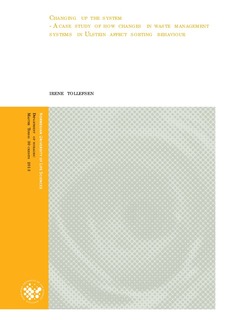| dc.description.abstract | To mitigate a climate that is changing in a potentially catastrophic direction due to human influences, we need to develop sound environmental policies that abate these influences. And the changes need to come from changes in human behaviour. This paper compares two economic theories of human behaviour; the rational choice theory of neoclassic economics and the institutions-as-rationality-contexts (IRC) of institutional theory. Where rational choice theory views the individual as the correct unit of analysis, with maximization of utility, fixed preferences and perfect information as core assumptions, IRC views the relationship between the individual and the surrounding structures as the core of analysis. The latter theory accepts the presence of intrinsic motivations to be drivers of our behaviour, and looks at how these are developed and influenced. The two theories will be compared by using the case study of waste management in Ulstein where two surveys with the same respondents were conducted during two different waste management systems. Interviews and focus groups interviews have been used to get background information and to go deeper into the results from the surveys.
Results from the surveys indicate that the weight-based system has triggered an increase in sorting levels, though, according to interviews, with varying levels of quality. The system was left due to bad economy and subscribers’ use of strategic solutions to get rid of waste in order to save money. According to the survey the current system has maintained the sorting level and the quality has improved. While the presence of warm glow can explain the current sorting level, the rational choice theory does not go into what generates the warm glow. The IRC theory looks into the development of the warm glow and presents a better understanding of the dynamic between individuals and the society they are part of. For the development of future policies it is recommended to properly assess the existing norms and motivations present in the context in which the policy is implemented. It is also recommended that the policy support individuals’ need for autonomy, competence and relatedness, which are needs that can be challenged by policies that are perceived as unfair and controlling. | no_NO |
